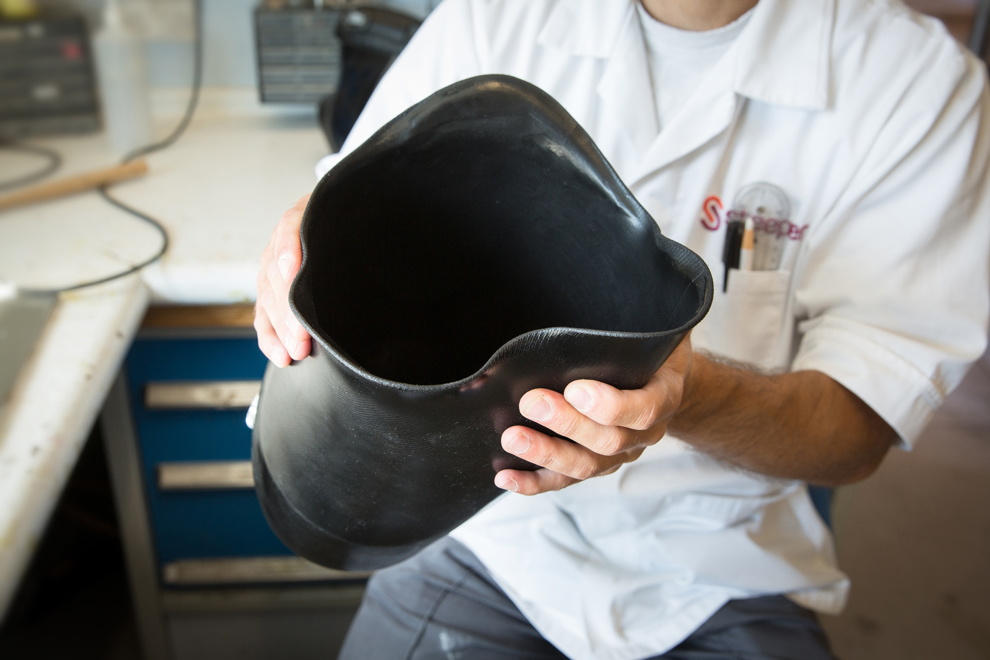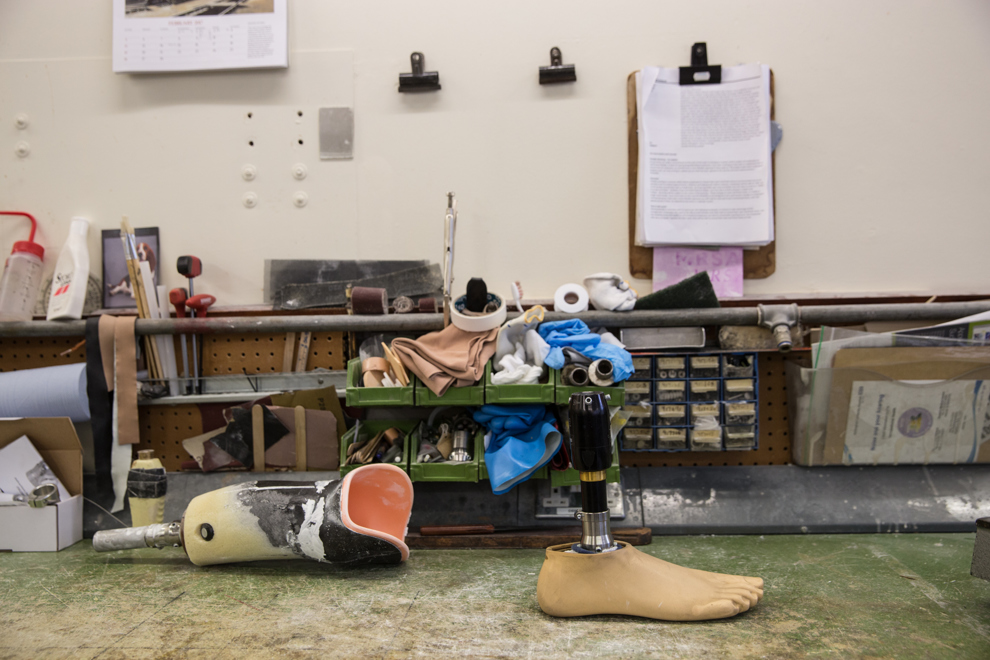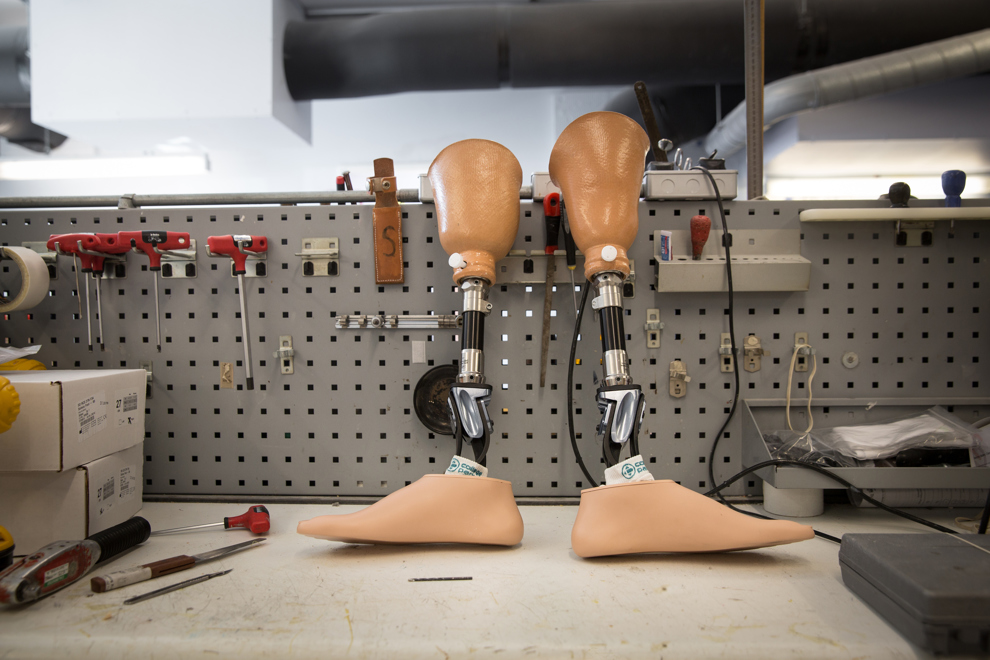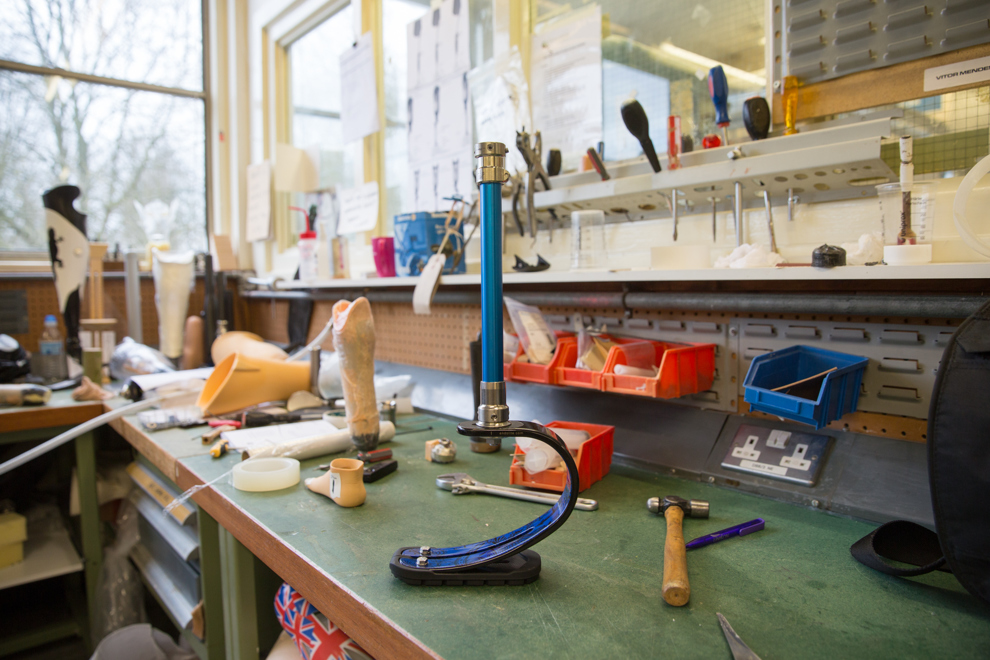Prosthetics technology and provision have come a long way in recent years, but while the pace of change is increasing we can’t just sit and wait for the future says Brian Chenier.
The future for prosthetics promises a world where capabilities will be driven by bionics and humanrobotic interfaces – today’s science fiction is set to become tomorrow’s reality. But until that Star Trek generation of technology lands, there is the daily task of ensuring that service delivery meets the needs of Blesma Members and enables them both to rehabilitate and regain their independence.
Seven years in post seems like a good time for Blesma Support Officer (Prosthetics) Brian Chenier to reflect on some of the challenges, successes and potential in the sector. It is a period book-ended by the fight for basic prosthetic provision some seven years ago to the provision of the first 3-D printed Hero Arm to a veteran earlier this year.
“There has been an amazing amount of progress in the sector during the seven years I have worked at Blesma,” says Brian, a former Royal Military Policeman with 24 years’ service. “New technology obviously makes for good headlines, but it is often the smaller things that make a difference to people’s lives, which is why everyone at the Association works hard to understand each Member’s individual needs and get them the right help.”

Blesma created the post of Support Officer (Prosthetics) in response to Dr Andrew Murrison’s report A Better Deal for Military Amputees in 2012.

“Blesma’s Chief Executive and Board of Trustees recognised that the prosthetic landscape was about to change as a large number of younger men and women were being discharged with complex medical needs,” says Brian, who had project managed a veterans’ mental health charity before joining Blesma. His immediate task was to assimilate a mountain of information and ensure that Blesma Members’ voices were being heard loud and clear through the corridors of power and provision.
“It was a steep climb because there were so many different rules and procedures – such as the fact that England, Scotland, Wales and Northern Ireland all operate differently. Most people also think of the NHS as a single entity when in fact it is made up of lots of organisations under the NHS badge that don’t always communicate perfectly with each other.
“At Blesma, there is something new to focus on every day; challenges big and small that we need to address. The job is a perfect fit as I like working with people and it mirrors the demands of my previous career as a military policeman, and later a military custodian, with its emphasis on investigating, getting to the facts, dealing with problems and managing expectations.”
Establishing the Veterans’ Prosthetics Panel in England has improved access to kit and technical support, but the Support Officer role is vital in ironing out kinks in service provision that run across the nation’s Limb Centres and funding approval processes. Understanding and utilising the different funding routes across Scotland, Wales and Northern Ireland are key.
REPRESENTING THE WIDER POPULATION
A prime example was an NHS England policy change that made it difficult for anyone other than serviceinjured amputees to access microprocessor knees. The prosthetics have been transformative for many Members, so Blesma was part of a lobby group that built the evidence-based case that opened up access for non-Service attributable veterans and civilians.
“Murrison had said that benefits for military veterans should also have a beneficial impact on the general public somewhere further down the line, so we took that to the commissioners with questions from reallife patients and pressed the case for wider provision,” says Brian.

“My role in that was to represent our non-Serviceinjured amputees who might have had traffic accidents or illnesses, for example – people who we knew would benefit from microprocessor controlled knees but who couldn’t access them – on a number of panels and boards. I made it clear that we were representing those people and the wider civilian population.”
The next seven years are likely to be peppered with a whole host of exciting developments but the pragmatic approach is to remain focused on current, individual cases. “I keep a watching brief on future developments and, working with the NHS, one of the most important things I’ve realised is that decision makers – NHS commissioners or the NHS England board – are people with families and lives. They are not faceless bureaucrats and one of the things that Blesma does very well is to bring the human story to any issue, proving what impact their decisions can have on people and their families.

“I see a great deal of innovation on the horizon, particularly in the way prosthetic devices are connected to the body. Over the next 25 years we will see advances such as genetically programmed field dressings that will repair wounds immediately to save lives and reduce scarring – we really are looking at Star Trek stuff. But the important job is to get things right here and now. We need a more equitable service around the UK so that everyone has access to every piece of equipment that can allow them to live a fulfilling and independent life.
“Every day I see people with limb loss who are highly functioning and highly valuable to society but who are being held back by the function of their prosthetic limb. We want that to change.
If I had a magic wand, I would like there to be an independent, fully-funded innovation team working to research the best technology and apply it to Blesma Members and the wider public. But we cannot just sit around and wait for the future, we have to make sure people get the help they need now.
“I give a lot of talks on behalf of Blesma and I always say that the Association doesn’t look after heroes, it looks after people who do heroic things every day. And that is what I enjoy most about this job; seeing how people pick themselves up every morning and, if they are struggling to keep themselves up, Blesma is there to help them. Seeing people on some of their most difficult days and being able to help them have their best day is a privilege.”
Looking for advice?
If you have a question or would like advice on any prosthetics issues, please contact BSO (Prosthetics) Brian Chenier on 020 8548 7080 or at bsoprosthetics@blesma.org
We can help
We are dedicated to assisting serving and ex-Service men and women who have suffered life-changing limb loss or the use of a limb, an eye or sight. We support these men and women in their communities throughout the UK. Click the link below to find out the different kinds of support we offer.
Get Support
Leave a comment
Join fellow Members and supporters to exchange information, advice and tips. Before commenting please read our terms of use for commenting on articles.